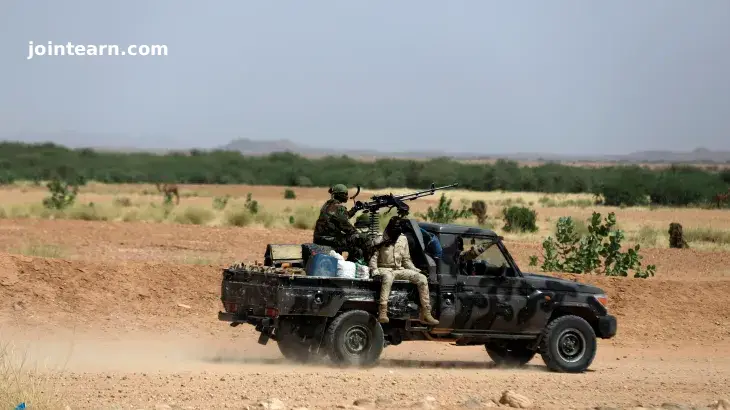
Abuja, Nigeria – The Nigerian government has expressed openness to receiving military assistance from the United States to combat rising threats from armed groups, but emphasized that any foreign involvement must respect the country’s territorial integrity and sovereignty. The statement came after U.S. President Donald Trump threatened potential military action over what he alleged was the “killing of Christians” in Nigeria.
Trump, in a social media post published on Saturday, directed the U.S. Department of Defense to prepare for “fast military action” if the Nigerian government does not take stronger measures against what he called “serious and ongoing persecution” of Christians in the West African nation.
However, senior Nigerian officials pushed back on the accusations, calling for balanced engagement instead of unilateral intervention.
Nigerian Government Responds to US President’s Claims
Daniel Bwala, spokesperson for the Nigerian presidency, stated on Sunday that Nigeria is ready to cooperate with the U.S. in combating terrorism, but stressed that such efforts must occur within the scope of Nigeria’s legal and territorial boundaries.
“We welcome U.S. assistance as long as it recognises our territorial integrity,” Bwala told Reuters. “I am sure that by the time these two leaders meet and sit, there will be better outcomes in our joint resolve to fight terrorism.”
President Bola Tinubu also responded strongly to Trump’s claims, rejecting the narrative that Nigeria is hostile toward religious minorities. Tinubu highlighted his administration’s consistent engagement with both Christian and Muslim leaders since taking office in 2023.
“The characterisation of Nigeria as religiously intolerant does not reflect our national reality,” Tinubu said in a statement. “We continue to safeguard freedom of religion and beliefs for all Nigerians.”
Context: Nigeria’s Complex Religious Landscape
Nigeria, a nation of over 200 million people, is roughly split between a predominantly Muslim north and a Christian-majority south. Violent extremism in the country is primarily driven by armed groups such as Boko Haram and splinter factions of the Islamic State, which operate mainly in the northeast of the country.
Despite Trump’s framing of the conflict as a religious war targeting Christians, several conflict experts argue that the violence is not rooted in a religious genocide but in broader instability. While Christians have been victims of militant attacks, so too have Muslims.
Nigerian conflict analyst Bulama Bukarti told Al Jazeera: “All the data reveals that there is no Christian genocide going on in Nigeria. This is a dangerous far-right narrative that has been simmering for a long time and is now being amplified.”
Bukarti emphasized that attacks by extremist groups often target both Christian and Muslim civilians alike, adding that they “bomb markets, churches, and mosques” without discrimination.
Experts Warn Against US Military Intervention
Foreign policy experts have cautioned the U.S. against unilateral military intervention in Nigeria, warning that it could worsen instability and undermine regional cooperation.
Ebenezer Obadare, senior fellow for African Studies at the Council on Foreign Relations, said the U.S. should coordinate with Nigerian authorities instead of acting independently.
“This is precisely the moment when Nigeria needs assistance, especially military assistance,” Obadare noted. “But it would be counterproductive to invade Nigeria and override the authority of the Nigerian government.”
What’s at Stake?
Trump’s threat to cut all U.S. aid to Nigeria raises concerns about the future of bilateral relations. The U.S. has long been a top security and development partner for Nigeria, providing assistance in areas such as counterterrorism, health, and education.
Tensions between the two countries have flared before. In 2024, the Trump administration placed Nigeria on a religious rights watch list, and multiple diplomatic setbacks—including a visa revocation for Nobel laureate Wole Soyinka—highlighted strains in the relationship.


Leave a Reply